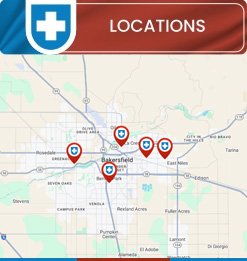Diabetes Management at Brimhall Primary Care Center, Ming Primary Care Clinic, Niles Primary Care Clinic, Universal Q-Street Primary Care, and Niles Family Medicine in Bakersfield, CA
Diabetes manifests in different ways with distinct underlying causes and symptoms. Our team helps in the diagnosis and treatment of type 1 and type 2 diabetes. We offer a wide range of comprehensive treatments for diabetes management to regulate and maintain blood sugar levels. It helps in the prevention of numerous chronic diseases including heart disease, kidney failure, and vision loss. For more information, contact us or book an appointment online. We have convenient locations at Brimhall Primary Care Center, Ming Primary Care Clinic, Niles Primary Care Clinic, Universal Q-Street Primary Care, and Niles Family Medicine in Bakersfield, CA.


Check Out Our 5 Star Reviews



Additional Services You May Need
▸ Annual Physical Exam
▸ COVID-19 Testing
▸ Chronic Disease Management
▸ Vaccinations
▸ STD Testing
▸ Primary Care
▸ Influenza (Flu)
▸ Common Cold
▸ Asthma
▸ Medical Weight Loss
▸ Diabetes
▸ School Physicals Exam
▸ Sports Physicals
▸ EKG
▸ Geriatric Care
▸ View All Services


